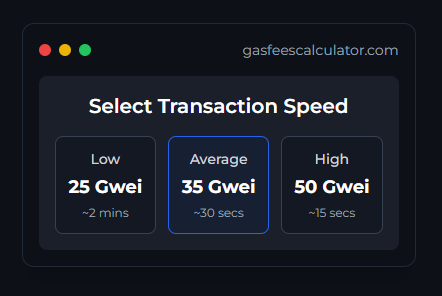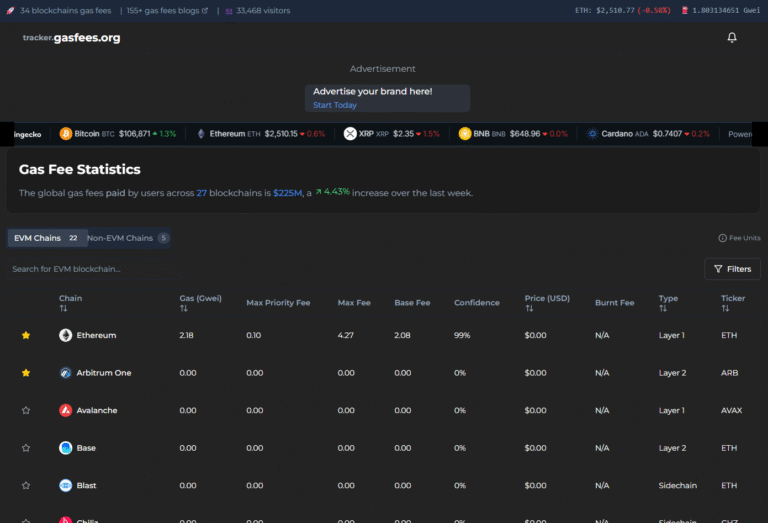What Are Moonriver Gas Fees?
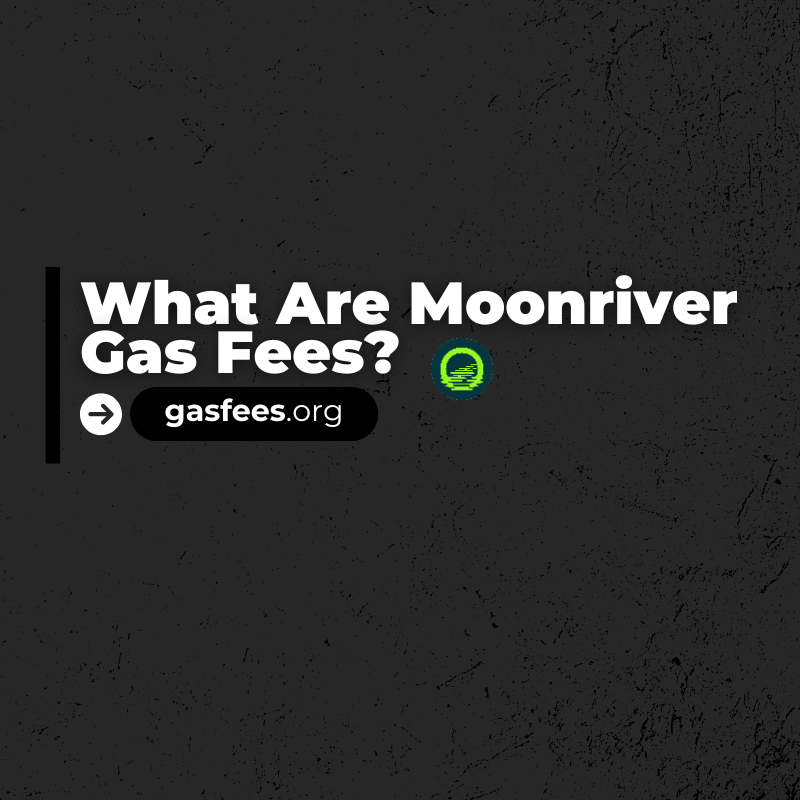
What Are Moonriver Gas Fees? Written By: Mr. GasMan Moonriver, a vibrant parachain within the Kusama ecosystem, has captured the imagination of developers and users alike with its promising blend of fast transaction speeds, robust functionality, and incredibly low gas fees. Unlike Ethereum’s notorious gas price hikes, Moonriver offers a refreshingly affordable experience, making it […]
EIP 4844 Explained: How Ethereum’s Latest Proposal Will Reduce Gas Fees and Boost Scalability
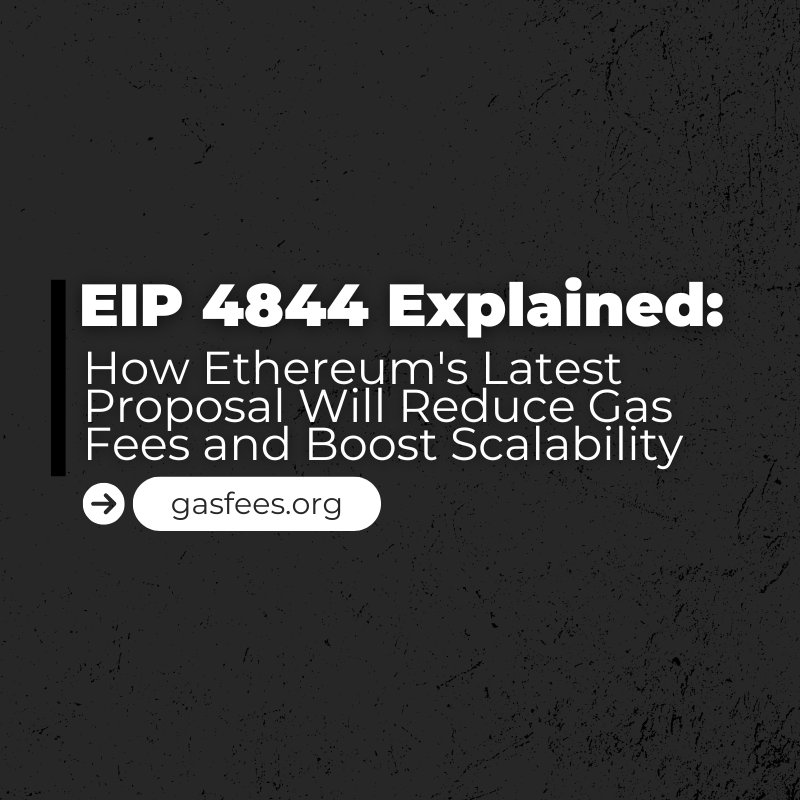
EIP 4844 is a proposed upgrade to Ethereum aimed at reducing gas fees and improving scalability. This guide explains how the upgrade works, its potential impact on transaction costs, and how it will enhance Ethereum’s ability to handle more transactions efficiently. If you’re interested in Ethereum’s future, understanding EIP 4844 is key to navigating its upcoming improvements.
What Are Acala Network Gas Fees?
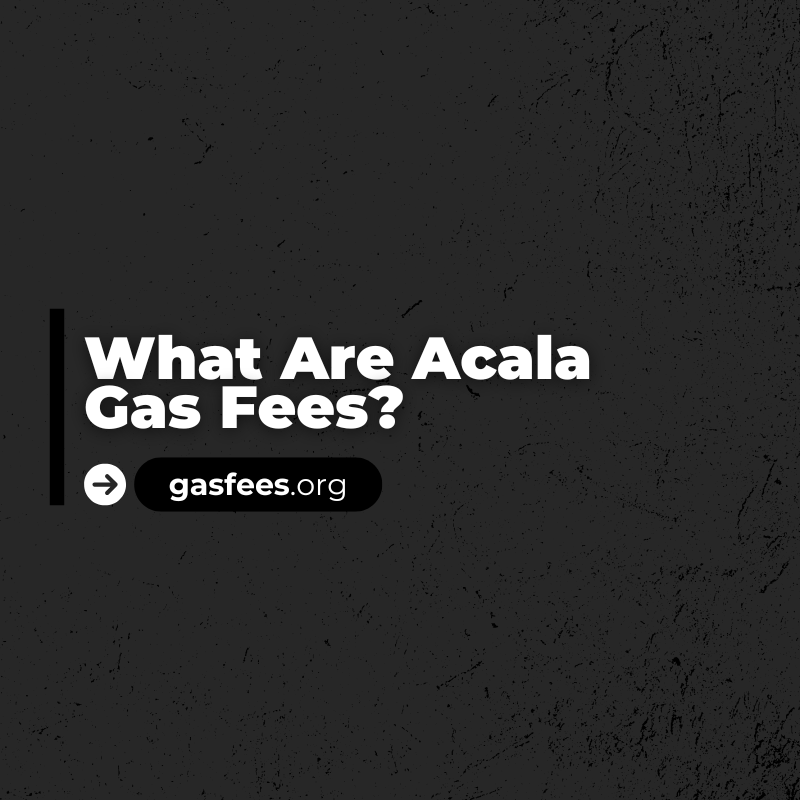
In the Acala Network, a leading DeFi platform built on the Polkadot ecosystem, gas fees are the costs associated with executing transactions or smart contracts on the blockchain. Unlike traditional blockchains where gas fees are paid in the native token (e.g., ETH for Ethereum), Acala’s gas fee structure is designed to be flexible and user-friendly, aligning with its mission to provide accessible decentralized finance (DeFi) solutions.
Acala allows users to pay gas fees in multiple tokens, including its native ACA token, the Acala Dollar (aUSD) stablecoin, or other supported assets within the network. This multi-token fee system reduces reliance on a single token, enhancing user convenience and mitigating volatility risks. Gas fees are determined by the computational resources required for a transaction, such as processing power and storage, and are kept low due to Acala’s efficient parachain architecture on Polkadot.
For example, a user transferring aUSD to another wallet or interacting with a DeFi protocol like Acala’s liquid staking might incur a small gas fee, dynamically calculated based on network demand and transaction complexity. Acala’s design also includes mechanisms to stabilize fees, ensuring predictability for users and developers. By leveraging Polkadot’s shared security and scalability, Acala minimizes costs compared to congested networks, making DeFi more inclusive.
To optimize gas fees, users can monitor network activity and choose times of lower congestion or use Acala’s fee estimation tools integrated into compatible wallets. Understanding and managing these fees is key to maximizing the benefits of Acala’s DeFi ecosystem.
What Are CELO Gas Fees?

CELO gas fees are the transaction costs associated with executing operations on the Celo blockchain, which focuses on providing decentralized financial services to mobile users. These fees, paid in CELO tokens, help maintain network security and ensure efficient transactions. Understanding CELO gas fees is crucial for optimizing costs when sending payments, interacting with smart contracts, or using decentralized applications on the Celo network.
